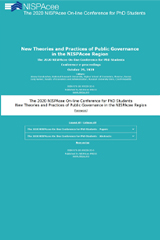EVENTS from Other Institutions
Knowledge Management in Public Sector Organisations
The course will provide a sound understanding of the knowledge management and talent management concept
April 18, 2024 - April 19, 2024
Venue: Barcelona (ES)
Organizer(s): European Institute of Public Administration (EIPA)
Language: English
Contact: b.vetter@eipa.eu
Info link: https://www.eipa.eu/courses/knowledge-management/
Civil servants in charge of effective service delivery, and ensuring knowledge sharing and talent management within and across teams, know how crucial it is to have quick access to relevant information, knowledge and expertise. Those with pressure to meet delivery objectives know how essential it is to retain the knowledge of colleagues who are leaving, and to onboard new colleagues effectively with systematic learning from their peers.
COVID-19 has forced institutions at all levels to switch to remote working, and this ‘new normal’ is here to stay. This poses new challenges for collaboration and sharing knowledge virtually. The fast initial adoption of quick and provisional tools has turned into the loss of efficiency and frustration among employees and stakeholders. We all have realised that tools are important, but a successful migration also requires leadership, clear guidelines and real commitment. Knowledge managers become the new strategists, where they need to develop and implement knowledge management strategies and action plans adapted to this new era of digitalisation.
The course will provide a sound understanding of the knowledge management and talent management concept; you will learn to apply proven tools and how to implement KM in your teams and in your organisation. Many best practice examples of KM in public institutions will inspire you.
The course will be based on the Knowledge Management Toolkit elaborated by our external expert Dr Klaus North for the European Commission. Furthermore, the experience of the UK Civil Service in linking KM and TM will be presented by our expert John Murphy. Other members of the team will explain different experiences and practices in different public organisations.
What will you learn:
You will be able to discuss the stages for development of a conceptual KM framework, building up strategies and plans for implementing it.
You will learn best practices from real examples and design training and intervention programmes for efficient knowledge transfer between generations. Each session will have a theoretical component, followed by interactive activities. Throughout the course, there is an emphasis on real-life examples and supported group work.




 Price:
Price: 









